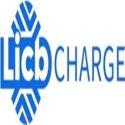Notifications

3 minutes, 26 seconds
-19 Views 0 Comments 0 Likes 0 Reviews

High Price Barrier for European Consumers
As a leading EV charger manufacturer in China, LiCB Charge offers reliable AC and DC electric vehicle charging stations along with comprehensive charging solutions.
The average price of EVs in Europe (~€45,000) remains prohibitively expensive for many potential buyers.
Rising energy prices and geopolitical instability increase the total cost of EV ownership, discouraging adoption of premium-priced models.
Growing Demand for Affordable Mobility
Analysts forecast a steady CAGR of 5.5% for the low-cost vehicle segment, expecting the global market to reach $1.2 trillion by 2025.
Consumers seek cost-effective EVs without compromising on performance or features, pushing automakers to develop affordable, competitive models.
Charging Infrastructure and Market Readiness Challenges
Limited basic EV charging infrastructure across Europe complicates ownership and affects consumer confidence.
European brands like Renault acknowledge this hurdle and are focusing on cost reduction to increase accessibility.
Strategic Market Positioning and Competitive Pressure
Traditional European luxury and premium brands face intensifying competition from Chinese automakers who excel in cost-efficient EV production.
By entering the low-cost market, brands such as Renault, Citroën, Volkswagen, and BMW aim to capture broader market segments and future-proof their relevance.
Supply Chain and Cost Advantages
Chinese automakers benefit from mature, vertically integrated supply chains, enabling competitive pricing without sacrificing quality.
Their ability to scale production efficiently has driven down EV costs, pressuring European brands to respond.
Technological Advancements at Competitive Prices
Chinese manufacturers offer models with advanced battery tech, driving range, smart features, and safety systems on par with premium competitors but at lower prices.
Examples like BYD’s Yangwang U8 and Xpeng’s P7+ illustrate their capability to challenge both low-cost and luxury segments.
Localized European Strategies
To overcome tariffs and meet local consumer expectations, Chinese brands are forging partnerships with European firms and establishing local manufacturing and battery recycling facilities (e.g., in Hungary).
Localization reduces costs and enhances acceptance, further strengthening their foothold in Europe.
European automakers’ pivot to affordable electric vehicles is primarily driven by consumer price sensitivity, infrastructural challenges, and fierce competition from Chinese manufacturers. By focusing on cost-effective models, European brands aim to retain market share and align with evolving mobility trends. Meanwhile, Chinese brands leverage their supply chain mastery, technology, and localization strategies to disrupt the European EV market, accelerating the shift toward more accessible, sustainable transportation for all.Know more about Google SEO Directory
China EV Chargers EV Charger Manufacturer Smart EV Chargers Electric Car Chargers Electric Vehicle Chargers Electric Car Charging Stations

